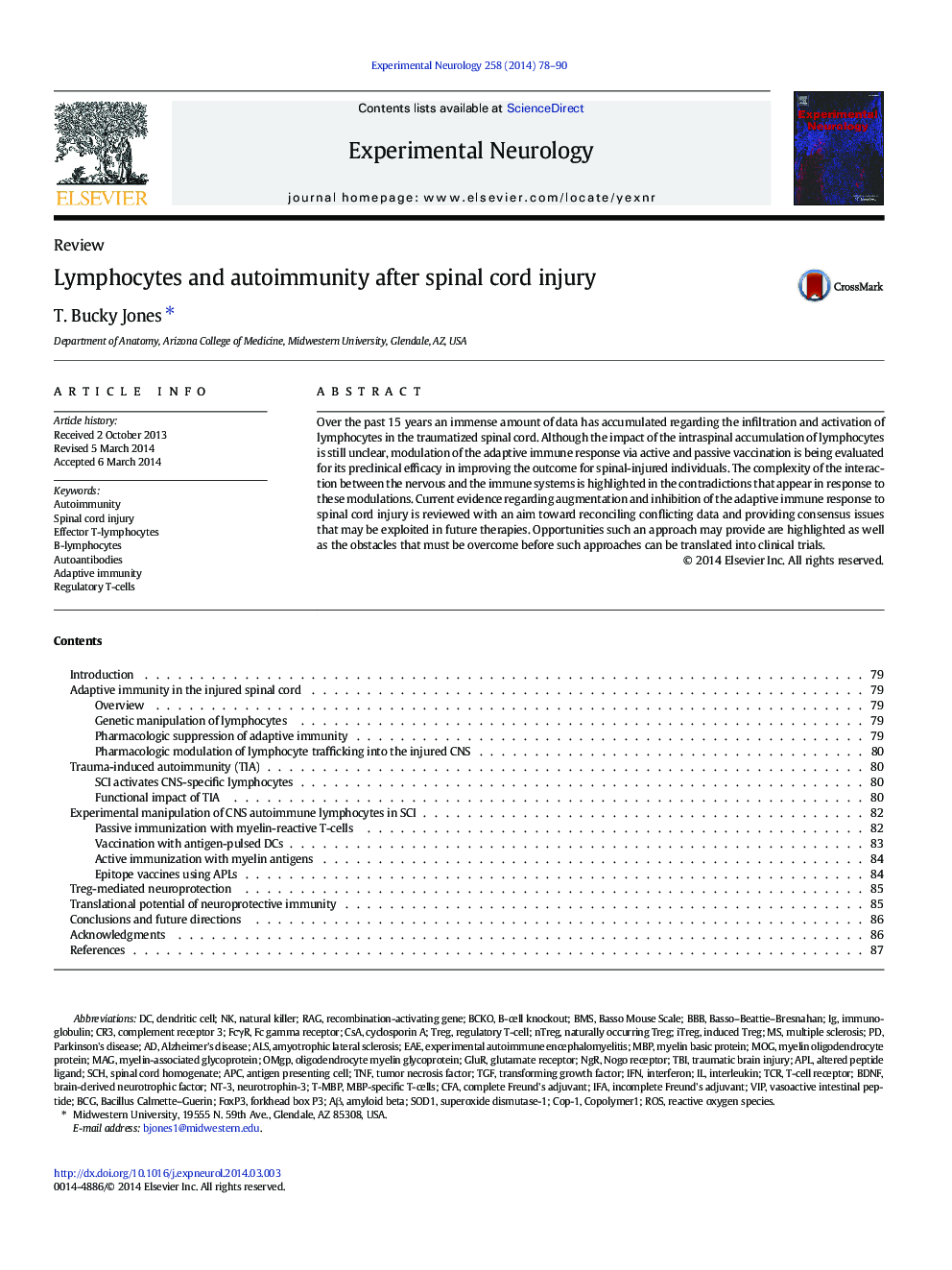| Article ID | Journal | Published Year | Pages | File Type |
|---|---|---|---|---|
| 3055491 | Experimental Neurology | 2014 | 13 Pages |
•Spinal cord trauma initiates functionally relevant intraspinal adaptive immunity.•Inhibition of lymphocytes by genetic or pharmacologic means improves SCI outcomes.•Trauma-induced autoimmunity exacerbates post-injury pathology.•Immunotherapeutic vaccination that boosts regulatory T-cells may be protective.
Over the past 15 years an immense amount of data has accumulated regarding the infiltration and activation of lymphocytes in the traumatized spinal cord. Although the impact of the intraspinal accumulation of lymphocytes is still unclear, modulation of the adaptive immune response via active and passive vaccination is being evaluated for its preclinical efficacy in improving the outcome for spinal-injured individuals. The complexity of the interaction between the nervous and the immune systems is highlighted in the contradictions that appear in response to these modulations. Current evidence regarding augmentation and inhibition of the adaptive immune response to spinal cord injury is reviewed with an aim toward reconciling conflicting data and providing consensus issues that may be exploited in future therapies. Opportunities such an approach may provide are highlighted as well as the obstacles that must be overcome before such approaches can be translated into clinical trials.
